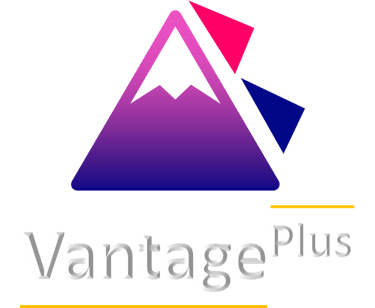
12 Steps to Building a Digital Marketing Team That Drives Results
Discover the 12 essential steps to building a highly effective digital marketing team that delivers tangible results. From hiring top talent to fostering collaboration, this blog post covers everything you need to know to create a successful team in today's competitive landscape.
DIGITAL MARKETING
Bashaar Ahmed
3/5/202411 min read
Define Your Digital Marketing Goals
To build a successful digital marketing team, it is imperative to first establish clear and measurable goals for your digital marketing efforts. By defining specific objectives, you provide your team with a roadmap for success and ensure that everyone is aligned towards a common purpose. These goals serve as the foundation upon which your entire digital marketing strategy will be built, guiding all decision-making processes and initiatives.
Furthermore, setting precise targets allows you to track progress and measure the effectiveness of your digital marketing campaigns. Whether your goal is to increase brand awareness, drive website traffic, or generate leads, having quantifiable metrics in place enables you to assess performance accurately. By defining your digital marketing goals from the outset, you not only enhance team motivation and focus but also lay the groundwork for a successful and impactful digital marketing strategy.


Identifying Key Performance Indicators (KPIs)
In the realm of digital marketing, identifying Key Performance Indicators (KPIs) is paramount to gauge the success and effectiveness of your strategies. These indicators serve as measurable metrics that provide insights into the performance of your digital marketing campaigns, allowing you to make informed decisions and adjustments. By analyzing KPIs such as conversion rates, click-through rates, and ROI, digital marketers can ascertain the impact of their efforts and optimize their tactics for better results. Understanding the nuances of KPIs is crucial for unlocking the full potential of your digital marketing initiatives and driving meaningful outcomes for your brand.
When it comes to talent acquisition in the digital marketing landscape, having a keen eye for individuals who excel in interpreting KPIs is imperative. Skilled professionals who can decipher data trends, analyze performance metrics, and derive actionable insights are invaluable assets to any digital marketing team. By aligning talent acquisition strategies with the specific proficiency in KPI evaluation, organizations can ensure they have the right expertise in place to elevate their digital marketing endeavors. Embracing a holistic approach to talent acquisition that focuses on recruiting individuals with a knack for interpreting KPIs can make a significant difference in the success of your digital marketing campaigns and overall business objectives.
Setting Short-term and Long-term Objectives
To achieve success in digital marketing, it is imperative to establish clear and measurable short-term and long-term objectives aligned with your overall digital marketing goals. Setting specific and attainable objectives is crucial in guiding your team towards success and ensuring that efforts are focused on the key performance indicators (KPIs) that truly matter. Short-term objectives can include increasing website traffic by a certain percentage within a month, while long-term objectives may involve improving conversion rates over a year. By defining these objectives, you provide your team with a roadmap for action and a clear understanding of what needs to be accomplished to drive results in the digital landscape.
In addition to outlining objectives, it is essential to regularly monitor and analyze progress towards these goals to make informed decisions and adjustments as needed. Utilizing tools such as Google Analytics or social media metrics can help in tracking your digital marketing efforts and evaluating if you are on the right path to achieving your objectives. By continuously assessing performance against established KPIs, you can identify areas for improvement, capitalize on successful strategies, and adapt to changes in the digital marketing landscape to stay ahead of the competition.
Understand the Essential Roles in a Digital Marketing Team
In the dynamic world of digital marketing, the various roles in digital marketing teams play a crucial part in driving success and achieving organizational goals. From strategists who analyze market trends and consumer behavior to content creators who craft engaging messages, each role contributes uniquely to the team's overall performance. The SEO specialists ensure that the brand's online presence is optimized for search engines, while social media managers foster engagement and build relationships with the target audience. Graphic designers bring creativity to life through visually appealing content, and data analysts provide valuable insights to inform strategic decision-making.
Furthermore, the roles in digital marketing teams are interconnected, requiring effective communication and collaboration amongst team members. Project managers oversee timelines and budgets, ensuring that campaigns are executed seamlessly and within scope. Email marketing specialists craft personalized campaigns to nurture leads and drive conversions, while CRM managers analyze customer data to enhance retention strategies. Digital advertising experts utilize platforms like Google Ads and Facebook Ads to reach target audiences effectively, maximizing ROI and driving business growth. Each role brings a unique set of skills and expertise, collectively contributing to the team's success in achieving marketing objectives.
The Must-Have Positions for Success
In the dynamic landscape of digital marketing, having the right positions within your team is crucial for achieving success and staying ahead of the curve. Key roles such as Digital Marketing Manager, Content Strategist, SEO Specialist, and Social Media Manager are essential for driving brand visibility, engagement, and conversions. These professionals bring diverse skill sets to the table, working cohesively to execute strategic campaigns and initiatives that resonate with target audiences. Each team member plays a vital role in harnessing the power of data analytics, creative storytelling, and cutting-edge technologies to propel the brand forward in the digital realm.
Continuous learning in digital marketing is a non-negotiable aspect of staying competitive in today's fast-evolving landscape. Team members must stay abreast of emerging trends, algorithm updates, and consumer behavior shifts to adapt their strategies effectively. Professional development opportunities, workshops, and industry conferences should be leveraged to foster a culture of growth and innovation within the team. By prioritizing continuous learning, digital marketing teams can remain nimble, creative, and responsive to the ever-changing demands of the digital marketplace.
Emerging Roles in Digital Marketing
As the digital landscape evolves, new roles within digital marketing are emerging to meet the demands of an ever-changing industry. One such role is the Data Analyst, a professional who excels at interpreting complex data sets to extract valuable insights that drive strategic decision-making. Data Analysts are instrumental in identifying trends, optimizing campaigns, and enhancing overall performance. Their expertise in tools such as Google Analytics, Tableau, and Python is essential for maximizing the effectiveness of digital marketing efforts.
Another prominent role on the rise is that of the Chatbot Specialist. With the increasing integration of chatbots in customer service and marketing strategies, businesses are seeking professionals who can design, implement, and maintain intelligent chatbot systems. Chatbot Specialists possess a deep understanding of Natural Language Processing (NLP) and Artificial Intelligence (AI) technologies. Their ability to create engaging chatbot experiences and streamline customer interactions makes them invaluable assets in the digital marketing realm.
Master the Art of Talent Acquisition
Crafting effective job descriptions is crucial in attracting the right talent to your digital marketing team. Clearly outlining the responsibilities, qualifications, and expectations for each position can help filter out unqualified candidates and attract those who closely match your requirements. Make sure to use relevant keywords and highlight the unique selling points of your company to stand out in a competitive job market. For inspiration, you can refer to examples from industry leaders like HubSpot's job descriptions for marketing roles at https://www.hubspot.com/careers/jobs-marketing.
Strategies for attracting top talent go beyond just job postings. Leveraging professional networking platforms like LinkedIn can help you reach a wider pool of qualified candidates. Engaging with industry influencers and participating in relevant online communities can also help boost your brand visibility and attract passive job seekers. Additionally, offering competitive compensation packages and opportunities for career growth and development can entice top talent to choose your company. To learn more about effective talent acquisition strategies, check out this article from Forbes on attracting top digital marketing talent: https://www.forbes.com/sites/forbestechcouncil/2020/01/09/how-to-attract-top-talent-to-your-digital-marketing-team/?sh=1b6a0bb56c1b.


Crafting Effective Job Descriptions
Crafting effective job descriptions is paramount in attracting top talent to your digital marketing team. Job listings should clearly outline the role's responsibilities, required skills, and qualifications. Using specific keywords related to digital marketing, such as SEO, PPC, social media management, and email marketing can help potential candidates find the job posting. Additionally, highlighting any unique perks or benefits of working for your company can make the position more appealing to qualified candidates. For example, mentioning opportunities for professional development, flexible work hours, or a vibrant company culture can set your job listing apart from others in the competitive digital marketing field.
In today's fast-paced digital landscape, a well-crafted job description can be the difference between attracting mediocre candidates and top-tier talent. Using language that speaks directly to the desired qualifications and experience shows that your company values expertise and professionalism. Furthermore, incorporating action verbs like "analyzing," "optimizing," and "strategizing" can convey the dynamic nature of the role and appeal to ambitious candidates seeking challenging opportunities in digital marketing. By clearly outlining the expectations and opportunities for growth within the job description, you can attract passionate individuals who are eager to contribute to the success of your digital marketing team.
Strategies for Attracting Top Talent
To attract top talent in the competitive digital marketing industry, it is essential to implement strategic approaches that showcase your organization as a desirable employer. Crafting compelling job descriptions that highlight key responsibilities, required skills, and benefits is pivotal in attracting high-caliber professionals. Utilizing platforms such as LinkedIn, Glassdoor, and industry-specific job boards can broaden the reach of your job postings and attract top talent actively seeking new opportunities.
Moreover, fostering a positive employer brand through social media engagement and showcasing employee testimonials can significantly enhance your organization's attractiveness to potential candidates. Highlighting unique selling points such as flexible work arrangements, professional development opportunities, and a vibrant company culture can differentiate your organization from competitors in the talent market. By consistently communicating your employer brand and value proposition, you can engage with top talent and cultivate a pool of qualified candidates eager to contribute to your digital marketing team's success.
Foster a Culture of Continuous Learning and Innovation
In today's fast-paced digital landscape, fostering a culture of continuous learning and innovation is imperative for staying ahead of the competition. Companies that prioritize ongoing education and creativity within their teams are better equipped to adapt to ever-evolving digital marketing trends. By providing employees with opportunities to enhance their skills and explore new ideas, organizations can cultivate a dynamic and forward-thinking workforce.
One way to promote a culture of continuous learning is through the implementation of regular training sessions that cover a range of relevant topics in digital marketing. Hosting workshops, webinars, and seminars led by industry experts can not only expand employees' knowledge but also inspire fresh perspectives and strategic thinking. Moreover, encouraging team members to engage in continuous learning outside of structured sessions, such as through online courses or industry conferences, can further foster a culture of innovation and growth within the organization.
Implementing Regular Training Sessions
To ensure the ongoing professional growth and development of your digital marketing team, it is imperative to implement regular training sessions. These sessions can cover a wide range of topics, including the latest trends in social media marketing, search engine optimization strategies, and advanced analytics tools. By providing your team with access to continuous learning opportunities, you equip them with the knowledge and skills needed to stay ahead in the competitive digital landscape.
Regular training sessions also offer a platform for team members to collaborate, share insights, and learn from each other's experiences. This collaborative learning environment not only fosters a sense of camaraderie within the team but also encourages creative thinking and problem-solving. By investing in the professional development of your digital marketing team through regular training sessions, you demonstrate your commitment to their success and empower them to achieve greater results for your organization.
Encouraging Creative Thinking and Experimentation
Encouraging creative thinking and experimentation within a digital marketing team is essential for staying ahead in today's rapidly evolving landscape. By fostering an environment that values innovation, professionals are more likely to push boundaries and generate fresh ideas that can set campaigns apart from the competition. Embracing a culture that encourages team members to think outside the box can lead to breakthrough strategies that resonate with target audiences and drive impactful results.
One effective way to foster creative thinking is by providing team members with opportunities to collaborate on projects and share diverse perspectives. Encouraging brainstorming sessions where individuals feel empowered to voice their ideas without fear of judgment can spark creativity and lead to innovative solutions. Additionally, setting aside time for experimentation allows professionals to test new approaches and tactics, learning valuable insights that can inform future strategies. By cultivating a culture that values creativity and embraces risk-taking, digital marketing teams can unlock their full potential and achieve success in today's competitive landscape.
Key Takeaways for Assembling a High-Impact Digital Marketing Team
Assembling a team that can navigate through its complexities and drive substantial results is paramount. This blog has outlined "12 Steps to Building a Digital Marketing Team That Drives Results," providing a comprehensive roadmap for businesses aiming to enhance their digital marketing efforts. Through strategic talent acquisition, clear goal-setting aligned with digital marketing objectives, understanding the critical roles within a team, and fostering a culture of continuous learning and innovation, organizations can position themselves for success.


Remember, the journey of building an effective digital marketing team doesn't end with hiring the right people. It requires ongoing effort in nurturing skills, adapting to new digital marketing trends, and constantly evaluating and redefining your digital marketing goals and KPIs to stay ahead of the curve. In this dynamic field, the willingness to innovate and adapt is just as crucial as the initial assembly of the team.
As you embark on or refine your journey toward creating a powerful digital marketing team, keep these steps in mind. They serve not only as a guide for assembling a team but as a foundation for sustained success in the digital marketing arena. The roles in digital marketing are ever-changing, and so should your approach to building and maintaining a team capable of achieving exceptional results.
In conclusion, the path to digital marketing success is through a carefully selected, well-trained, and highly motivated team. By prioritizing talent acquisition in digital marketing, focusing on essential digital marketing roles, and committing to continuous learning and innovation, your team will not only drive results but also adapt to and lead in the digital marketing landscape of tomorrow.
Ready to Elevate Your Digital Marketing Strategy?
Building a dynamic and results-driven digital marketing team is a journey that requires insight, dedication, and the right partners. If you're looking to elevate your digital marketing efforts and assemble a team poised for success, we're here to help. Our expertise in talent acquisition, strategic goal setting, and fostering innovation in digital marketing can transform your vision into reality.
Book a meeting with us today and take the first step towards creating a digital marketing team that not only drives results but sets new benchmarks for success in the industry. Together, we can achieve your digital marketing goals and KPIs, ensuring your organization not only keeps pace with the evolving digital landscape but leads the way.
Let's start building your high-impact digital marketing team. Contact us now to explore how we can support your journey to digital marketing excellence.
Frequently Asked Questions (FAQ)
Q: What are the key components of a successful digital marketing team?
A: A successful digital marketing team comprises a mix of roles including strategists, content creators, SEO specialists, data analysts, social media managers, and designers. Each member plays a critical role in achieving digital marketing goals and KPIs through their specialized skills and collaborative efforts.
Q: How do I identify the right talent for my digital marketing team?
A: Identifying the right talent involves understanding the specific needs of your digital marketing strategy, including the skills and expertise required to meet those needs. Look for individuals with a proven track record, a willingness to learn, and a fit with your company culture. Utilizing talent acquisition strategies in digital marketing can also streamline this process.
Q: How often should we set and review our digital marketing goals?
A: Digital marketing goals should be set annually at a minimum, with quarterly reviews to adjust strategies as needed. This allows your team to stay agile and adapt to changes in the market or your business objectives.
Q: Can small businesses compete with larger companies in digital marketing?
A: Absolutely. Small businesses can leverage digital marketing to compete with larger companies by focusing on niche markets, personalizing customer experiences, and utilizing cost-effective digital marketing tools and platforms. Creativity and adaptability can often level the playing field in the digital arena.
Q: How important is continuous learning in digital marketing?
A: Continuous learning is crucial in digital marketing due to the rapid pace of change in technologies, platforms, and consumer behaviors. Teams that prioritize staying updated with the latest trends, tools, and best practices are more likely to innovate successfully and maintain a competitive edge.
Q: What role does data analysis play in digital marketing?
A: Data analysis is foundational to digital marketing success. It enables teams to measure the effectiveness of campaigns, understand consumer behavior, and make informed decisions. By analyzing data, teams can optimize strategies for better engagement, conversion rates, and ROI.
